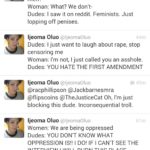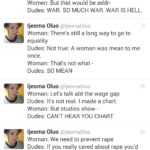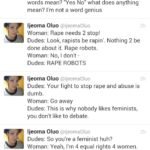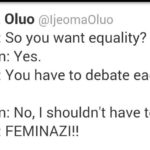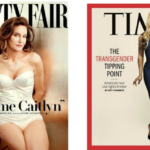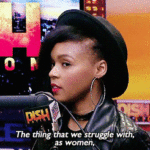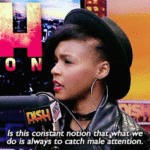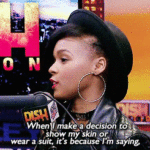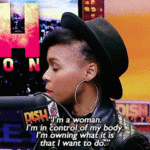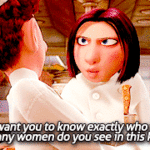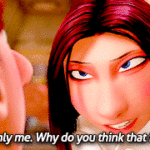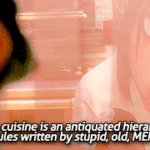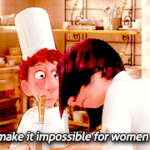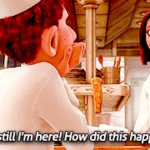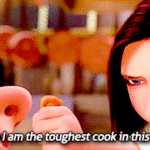What it’s like to talk about feminism on the internet
this is on point
feminism
On May 29, 2014, the issue of timemagazine magazine which proclaimed the “Transgender Tipping Point” was revealed with me on the cover. June 1, 2015 a year and 3 days later, Caitlyn Jenner’s vanityfair cover was revealed proclaiming #CallMeCaitlyn
I am so moved by all the love and support Caitlyn is receiving. It feels like a new day, indeed, when a trans person can present her authentic self to the world for the first time and be celebrated for it so universally.
Many have commented on how gorgeous Caitlyn looks in her photos, how she is “slaying for the Gods.” I must echo these comments in the vernacular, “Yasss Gawd! Werk Caitlyn! Get it!”
But this has made me reflect critically on my own desires to ‘work a photo shoot’, to serve up various forms of glamour, power, sexiness, body affirming, racially empowering images of the various sides of my black, trans womanhood.
I love working a photo shoot and creating inspiring images for my fans, for the world and above all for myself. But I also hope that it is my talent, my intelligence, my heart and spirit that most captivate, inspire, move and encourage folks to think more critically about the world around them.
Yes, Caitlyn looks amazing and is beautiful but what I think is most beautiful about her is her heart and soul, the ways she has allowed the world into her vulnerabilities. The love and devotion she has for her family and that they have for her. Her courage to move past denial into her truth so publicly. These things are beyond beautiful to me.
A year ago when my Time magazine cover came out I saw posts from many trans folks saying that I am “drop dead gorgeous” and that that doesn’t represent most trans people. (It was news to be that I am drop dead gorgeous but I’ll certainly take it). But what I think they meant is that in certain lighting, at certain angles I am able to embody certain cisnormative beauty standards. Now, there are many trans folks because of genetics and/or lack of material access who will never be able to embody these standards. More importantly many trans folks don’t want to embody them and we shouldn’t have to to be seen as ourselves and respected as ourselves . It is important to note that these standards are also infomed by race, class and ability among other intersections.
I have always been aware that I can never represent all trans people. No one or two or three trans people can. This is why we need diverse media representstions of trans folks to multiply trans narratives in the media and depict our beautiful diversities.
I started #TransIsBeautiful as a way to celebrate all those things that make trans folks uniquely trans, those things that don’t necessarily align with cisnormative beauty standards. For me it is necessary everyday to celebrate every aspect of myself especially those things about myself that don’t align with other people’s ideas about what is beautiful. #TransIsBeautiful is about, whether you’re trans or not, celebrating all those things that make us uniquely ourselves.
Most trans folks don’t have the privileges Caitlyn and I have now have. It is those trans folks we must continue to lift up, get them access to healthcare, jobs, housing, safe streets, safe schools and homes for our young people. We must lift up the stories of those most at risk, statistically trans people of color who are poor and working class.
I have hoped over the past few years that the incredible love I have received from the public can translate to the lives of all trans folks. Trans folks of all races, gender expressions, ability, sexual orientations, classes, immigration status, employment status, transition status, genital status etc.. I hope, as I know Caitlyn does, that the love she is receiving can translate into changing hearts and minds about who all trans people are as well as shifting public policies to fully support the lives and well being of all of us.
The struggle continues…
#GirlsWithToys hashtag – part 25
What is this hashtag about? In short: the hashtag was born out of casual sexism by a male scientist. To read more about what spurred this response, read Kate Clancy’s (creator of the hashtag) article below:
Girls With Toys: This is what real scientists look like.
View my other posts here: Part 1, Part 2, Part 3, Part 4, Part 5, Part 6, Part 7,Part 8, part 9, part 10, part 11, part 12, part 13, part 14, part 15, part 16, part 17, part 18, part 19, part 20, part 21, part 22, part 23 and part 24.
kewl
Of course, not all women of color are sexualized in the same way. For example, while black women are considered lascivious, always consenting and out of control, Latina women are considered exotic or overly sensual and Asian women are considered childish and prude. These particular stereotypes are reinforced through popular culture and pornography (just Google respectively “Asian women,” “black women,” or “Latina women” and then “women” and see what comes up). The common thread here is that nonwhite women’s sexuality is seen as outside the norm of white heterosexuality. It’s therefore something to be uniquely desired, manipulated, exploited, or controlled. Within this rather toxic climate, being a woman of color who’s in touch with her sexuality is an act of resistance. Pushing past the negative media depictions and still finding a healthy, healing, erotic, and functional sexuality is no small feat.
Ok the reason this is one of the best scenes I have ever seen in a movie is because they immediately establish Colette’s tough personality as traits of a boss NOT a bitch. Unlike far too many films (children’s and adults), this lead female doesn’t try to make herself stand out by saying something that undermines other women like “I’m not like most women who spend half the day worrying what they look like” or “I don’t sit around playing with makeup and dolls”. I am so sick of seeing female characters that are written as being proud of being strong, brave, or courageous despite them being a woman. AS IF BEING A WOMAN IS A HANDICAP AND THEY BEAT THE ODDS. Colette straight out calls the patriarchy and establishes the system between her and her subordinate. At the end she isn’t portrayed as bitchy, but as a leader, and Linguine is impressed, not put off. If a man is tough and takes no bullshit, he is admired and considered a strong leader and boss. If a woman does the same she is considered out of line, bossy, and bitchy.
Here, Colette is an immediate leader, and does not try and undermine herself or other women in order to prove that she is charge.
Colette is seen as the boss, not seen as bossy.
I loved Colette.
Some things I enjoyed reading that you might enjoy reading:
Standard
- Chimamanda Ngozi Adichie Wants Young Girls and Women to Forget About Being Liked by Kayla Greaves: It’s a preamble to the video of the Queen herself calling bullshit on the particular way women are socialized to be nice above all else.
- Manhattanhenge by Neil deGrasse Tyson: I’ve developed a bit of a crush on New York and it goes along well with my crush on Neil.
How polyamorous queer women really cope with jealousy
by Niko Bell: I’ve posted a few quotes since coming across this review but I am not being hyperbolic when I say this article has given me life. (Cue Micheal Jackson’s “You are not aloooooooone….”)
- Growing Old With The Inuit by Justin Nobel: It’s simply a beautiful piece of writing. History and intimacy and reflection.
- Wanting and Knowing by Guy New York: Poly processing and real real real talk.
- Private Public Secret by The Coquette: Reflections on anonymity and truth (also the most articulate answer I’ve come across for the incessant “why don’t you show your face” question.)
- The Brute and The Brat by Sinclair Sexsmith: You know I had to put something dirty on this list, and here it is. Hot as fuck queer bratty girl smut. You’re welcome.
The huge amount of pressure on young girls to let their boyfriends get away with everything and not to stand up for themselves, lest they stop being a ‘chill girlfriend’ and instead become a horrible, controlling harpy is such bullshit.
Stop teaching young girls that demanding to be treated with respect and courtesy makes them shrill, over-emotional, or unworthy of listening to.
Fashion is one of the very few forms of expression in which women have more freedom than men. And I don’t think it’s an accident that it’s typically seen as shallow, trivial, and vain. It is the height of irony that women are valued for our looks, encouraged to make ourselves beautiful and ornamental… and are then derided as shallow and vain for doing so. And it’s a subtle but definite form of sexism to take one of the few forms of expression where women have more freedom, and treat it as a form of expression that’s inherently superficial and trivial. Like it or not, fashion and style are primarily a women’s art form. And I think it gets treated as trivial because women get treated as trivial.
I feel like this about lingerie and specifically the value people place on lingerie (which is very often women’s work). The devaluation of things associated with women and women’s labor is reified in garments that are almost exclusively seen on women’s bodies. There’s this overwhelming sense that the labor associated with sewing, say, a bra is valueless, and that the laborer should be willing to work for free…or at least for inhumanely cheap wages. Culturally, I think this devaluation also ties into a lot of other things (for example, in America, puritanical Protestantism and its suspicions of the body, and, globally, the taken-for-granted exploitation of people of color), but I’ve just been idly pondering the way lingerie links up with many other conversations. And that’s not even getting into all the other expectations surrounding lingerie and how women are penalized for not conforming. Lift your breasts, but don’t wear push-ups. Wear underwear, but make sure it’s invisible. And so forth and so on. (I’m on my phone, by the way. Please pardon any typos.)
What do you think of woman who uses lingerie and does makeup,and beig empowered by it? You think that invalidates her feminism?
Standardempowerment is such a useless concept tbh.
your personal feelings on make-up really don’t matter when you’re talking about structural oppression. feminism doesn’t give a shit whether you are ~empowered~ from wearing eyeliner or not.
what feminism cares about is the fact that girls are pressured and groomed to wear make-up from their childhood on, that employers are less likely to hire you or pay you well if you don’t wear make-up, that the beauty industry is largely controlled by men and focused on making women feel insecure about their natural body so they can advance capitalism, that the beauty industry spends billions of dollars each year to contribute to the idea all girls are raised into that it’s only their looks that matter and give them worth.
i don’t think that wearing make-up or lingerie invalidates someone’s feminism, no. i do think that, regardless of your personal feelings on the matter, you have to be able to criticize make-up and femininity in general on a structural level though. you have to recognize that femininity is compulsory and imposed on women from the patriarchy. you have to recognize that women who don’t or can’t perform femininity the way it is dictated, especially disabled, lbpq+ and trans women and women of colour, are punished for it. and if you can’t do that because you’d rather cling to useless liberal concepts like empowerment then yes, that does invalidate your feminism.
